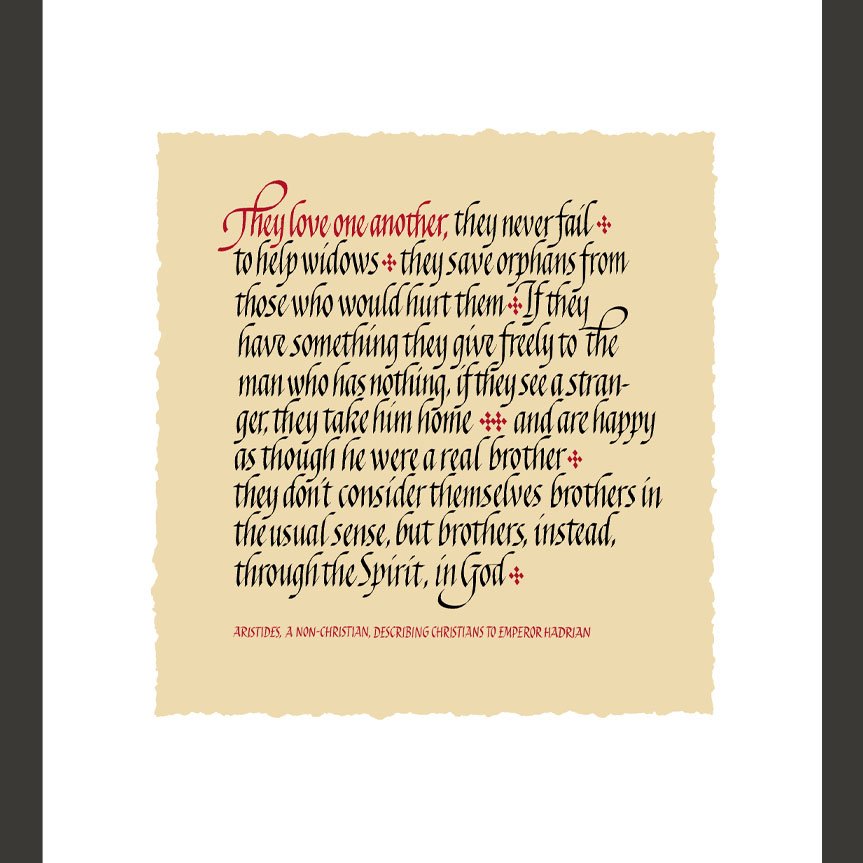Aristides
They love one another, they never fail to protect widows, they protect orphans from those that would hurt them. If they have something, they give freely to the man who has nothing. If they see a stranger, they take him home and are happy as though he were a real brother. They don’t consider themselves brothers in the usual sense, but brothers, instead through the Spirit, in God.
Aristides, a non Christian, describing Christians to Emperor Hadrian
They love one another, they never fail to protect widows, they protect orphans from those that would hurt them. If they have something, they give freely to the man who has nothing. If they see a stranger, they take him home and are happy as though he were a real brother. They don’t consider themselves brothers in the usual sense, but brothers, instead through the Spirit, in God.
Aristides, a non Christian, describing Christians to Emperor Hadrian
They love one another, they never fail to protect widows, they protect orphans from those that would hurt them. If they have something, they give freely to the man who has nothing. If they see a stranger, they take him home and are happy as though he were a real brother. They don’t consider themselves brothers in the usual sense, but brothers, instead through the Spirit, in God.
Aristides, a non Christian, describing Christians to Emperor Hadrian
Behind The Art - Aristides:
Hadrian was emperor of Rome from 117 until his death in 138. One event concurrent with his reign was the steady growth of yet another religious movement. Nothing remarkable about that, but this one did have some troubling features. Its followers worshiped some Jewish rabbi who had a brief career almost a century earlier. It seems the reason it was brief is that he had gotten into trouble with the local religious establishment in Jerusalem. They had him arrested, tried and - with the reluctant cooperation of Pilate, the Roman governor - executed. His offenses? The healings and other miracles were disturbing enough. But the things he said were intolerable, blasphemous. He claimed to be a King, also the Son of God.
Well, after all this time, Hadrian wondered, what might this man’s followers be up to? Anything here to disrupt the status quo? Threaten the empire?
He found a man named Aristides, a Greek, not a Christian himself - an objective observer, presumably - to go and investigate the Christians.
Beyond my excerpt the text has another lovely description. “If one of them is poor”. Aristides continues, “and there isn’t enough food to go around, they fast for several days to give him the food he needs…This is really a new kind of person. There is something divine in them.”
—Michael

